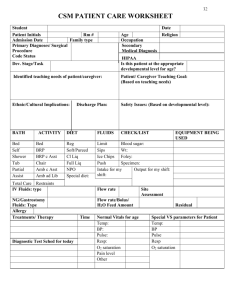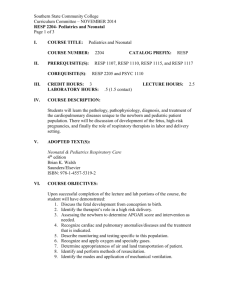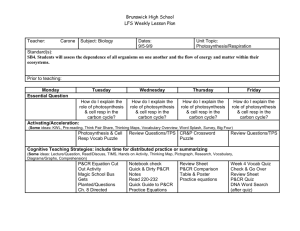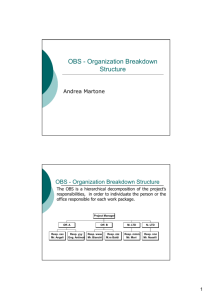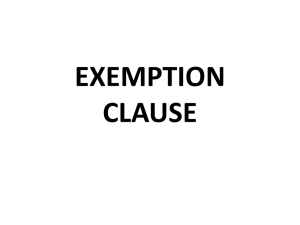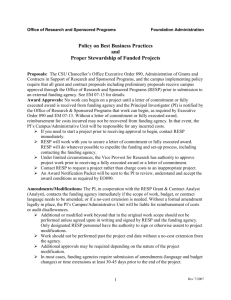Advisor Presentation - Counsel Portfolio Services
advertisement
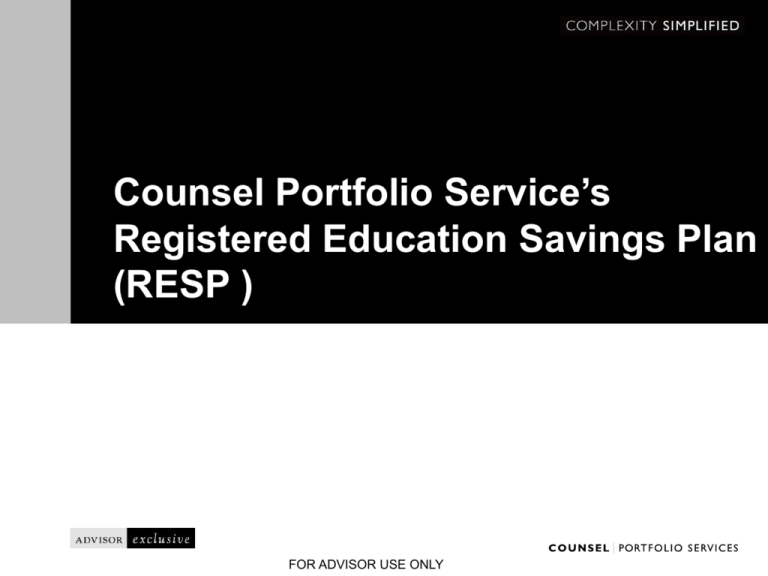
Counsel Portfolio Service’s Registered Education Savings Plan (RESP ) FOR ADVISOR USE ONLY University tuition* 1988: $1,100 2013: $7,000 2023: $? 4 year program today: • $40,000? • $60,000? • $80,000? *Approximate. $6,882 UWO tuition 2012-2013 FOR ADVISOR USE ONLY Why a Counsel RESP? • RESPs are a financial planning ‘must’ for most families • For clients with other Counsel accounts, consistency of investment approach – Counsel investment philosophy and process extended to RESP investments • Detailed reporting through the Quarterly Portfolio Review • No account or trustee fee FOR ADVISOR USE ONLY What is an RESP? A Registered Education Savings Plan (RESP) is an account used to save for post-secondary education Basic Structure: • The subscriber (makes the contributions) • The promoter (Counsel; administers the RESP ) • The beneficiary (the person who attends a post-secondary program) Benefits : • Contributions to the plan grow on a tax-deferred basis • Provides access to various government grants • Withdrawals of investment income and grants are usually taxed in beneficiary’s hands (typically in a low tax bracket) FOR ADVISOR USE ONLY How Does an RESP Work? Subscriber enters into an RESP contract with the promoter and names one or more beneficiaries under the plan 1. Government grants (if applicable) Subscriber makes contributio ns to the RESP. Canada Education Savings Grant (CESG) is paid to the RESP. Canada Learning Bond (CLB) is paid to the RESP. Any designated provincial education saving program that is paid to the RESP. The promoter of the RESP administers all amounts paid into the RESP. As long as the income stays in the RESP, it is not taxable. The promoter also makes sure payments from the RESP are made according to the terms of the RESP. The promoter can return the subscriber’s contributions taxfree. The promoter can make payments to the beneficiary to help finance his or her post-secondary education. Source: Canada Revenue Agency FOR ADVISOR USE ONLY The promoter can make accumulated income payments. How Does an RESP Work? Subscriber enters into an RESP contract with the promoter and names one or more beneficiaries under the plan Government grants (if applicable) 2. Subscriber makes contributio ns to the RESP. Canada Education Savings Grant (CESG) is paid to the RESP. Canada Learning Bond (CLB) is paid to the RESP. Any designated provincial education saving program that is paid to the RESP. The promoter of the RESP administers all amounts paid into the RESP. As long as the income stays in the RESP, it is not taxable. The promoter also makes sure payments from the RESP are made according to the terms of the RESP. The promoter can return the subscriber’s contributions taxfree. The promoter can make payments to the beneficiary to help finance his or her post-secondary education. Source: Canada Revenue Agency FOR ADVISOR USE ONLY The promoter can make accumulated income payments. How Does an RESP Work? Subscriber enters into an RESP contract with the promoter and names one or more beneficiaries under the plan Government grants (if applicable) 3. Subscriber makes contributio ns to the RESP. Canada Education Savings Grant (CESG) is paid to the RESP. Canada Learning Bond (CLB) is paid to the RESP. Any designated provincial education saving program that is paid to the RESP. The promoter of the RESP administers all amounts paid into the RESP. As long as the income stays in the RESP, it is not taxable. The promoter also makes sure payments from the RESP are made according to the terms of the RESP. The promoter can return the subscriber’s contributions taxfree. The promoter can make payments to the beneficiary to help finance his or her post-secondary education. Source: Canada Revenue Agency FOR ADVISOR USE ONLY The promoter can make accumulated income payments. How Does an RESP Work? Subscriber enters into an RESP contract with the promoter and names one or more beneficiaries under the plan Government grants (if applicable) Subscriber makes contributio ns to the RESP. 4. Canada Education Savings Grant (CESG) is paid to the RESP. Canada Learning Bond (CLB) is paid to the RESP. Any designated provincial education saving program that is paid to the RESP. The promoter of the RESP administers all amounts paid into the RESP. As long as the income stays in the RESP, it is not taxable. The promoter also makes sure payments from the RESP are made according to the terms of the RESP. The promoter can return the subscriber’s contributions taxfree. The promoter can make payments to the beneficiary to help finance his or her post-secondary education. Source: Canada Revenue Agency FOR ADVISOR USE ONLY The promoter can make accumulated income payments. How Does an RESP Work? Subscriber enters into an RESP contract with the promoter and names one or more beneficiaries under the plan Government grants (if applicable) Subscriber makes contributio ns to the RESP. Canada Education Savings Grant (CESG) is paid to the RESP. Canada Learning Bond (CLB) is paid to the RESP. Any designated provincial education saving program that is paid to the RESP. The promoter of the RESP administers all amounts paid into the RESP. As long as the income stays in the RESP, it is not taxable. The promoter also makes sure payments from the RESP are made according to the terms of the RESP. 5. The promoter can return the subscriber’s contributions taxfree. The promoter can make payments to the beneficiary to help finance his or her post-secondary education. Source: Canada Revenue Agency FOR ADVISOR USE ONLY The promoter can make accumulated income payments. Basic Beneficiary Requirements: Must: • Have a valid Social Insurance Number (SIN) • Be a resident of Canada when designated as beneficiary • For Family Plan Only: be under age 21 when named a beneficiary FOR ADVISOR USE ONLY Contributions • Contributions made by a subscriber are called “the capital portion” – Not tax deductible from the subscriber’s income – Interest paid on money borrowed to contribute to an RESP cannot be deducted from income – Only qualified investments can be purchased • Two types of contributions: • Assisted – these receive government grants/bonds • Unassisted – these do not attract government grants/bonds • There are no annual contribution limits • The lifetime limit is $50,000 FOR ADVISOR USE ONLY RESP Grants and Bonds • There is one type of grant available: – Canada Education Savings Grants (CESG) • There is one type of bond available: – Canada Learning Bond (CLB) FOR ADVISOR USE ONLY CESGs • An incentive provided by Employment and Skills Development Canada (ESDC ) • Equal to 20% of annual contributions made to all eligible RESPs to a maximum of $500 for each beneficiary per year* • Lifetime limit of $7,200 • ESDC will pay “Additional CESG” for each qualifying beneficiary based on the subscriber’s net (family) income: – Additional 20% on the first $500 contributed if household income is less than or equal to $41,544 • $600/yr. – An extra 10% on the first $500 if household income is between $41,544 and $83,008 • $550/yr. * Where unused CESG room is ‘carried forward’, $1,000 per year may be earned. FOR ADVISOR USE ONLY CESG Rules and Eligibility • Beneficiaries may qualify for CESGs up to the end of the calendar year they turn 17 years of age • Beneficiaries who are 16 or 17 years of age can receive CESGs if: – A minimum of $2,000 in contributions have been made and not withdrawn before the year the beneficiary turns 16 years of age Or, – A minimum of $100/year has been contributed and not withdrawn in any of the 4 years before the beneficiary turns 16 years of age – Beneficiary must be a resident of Canada when contributions were made FOR ADVISOR USE ONLY Canada Learning Bond • An incentive provided by ESDC • For beneficiaries born after Jan. 1, 2004 • Family must receive the National Child Benefit Supplement each year to qualify • Maximum benefit is $525 initially, and $100/yr. until the beneficiary turns 15 years of age • If the beneficiary does not go on to post-secondary education, the CLB must be repaid FOR ADVISOR USE ONLY Family Plans • Beneficiary must be related (by blood or adoption) to subscriber • New beneficiaries can be added any time (without limit) • Money in the plan is ‘communal’ – Any child under the plan can use any part of the funds for educational purposes • For non-siblings, they must be related to the subscriber (not to each other) FOR ADVISOR USE ONLY Individual Plans • • • Only one beneficiary Beneficiary cannot be changed – but the account can be transferred to a new individual account No restriction on age of beneficiary, – but if beneficiary is over 17 years of age, they will not be eligible for the CESG FOR ADVISOR USE ONLY RESP Strategies to Consider 1. The ‘Front-Loader’ • • • • • • • Affluent clients $50,000 maximum invested immediately Only attracts $500 CESG Maximizes tax-deferred compound growth Depending on rate of return, can maximize RESP value Can be volatile depending on investment choices No dollar cost averaging opportunities FOR ADVISOR USE ONLY RESP Strategies to Consider 2. The ‘Mini Front-Loader + CESG Maximizer’ • Affluent/moderately affluent clients • $16,000 invested immediately • Becomes affordable after year 1; can PAC remaining $34,000 • $2,500 per year attracts max. $500 CESG/yr • Attracts full $7,200 CESG lifetime maximum • Maximizes tax-deferred compound growth on initial deposit • Depending on rate of return, can maximize RESP value FOR ADVISOR USE ONLY RESP Strategies to Consider 3. The ‘Goal-Specific’ • Work backwards from a goal – e.g. set a total goal: Pay for $6,000 per yr x 4 yrs. = $24,000 and attract the most CESG possible – How much “CESG-eligible” contribution is needed? • • • • Divide goal by 1.2 = $20,000 Possible option: $2,500/yr. x 8 yrs.* $4,000 CESG earned The client ‘partners’ with ESDC to hit their goal * Subject to special contribution rules for ages 16-17. Investment return may result in more or less than $24 K depending on how invested. FOR ADVISOR USE ONLY RESP Strategies to Consider 4. The ‘Late Bloomer’ • • • • “Catch up” to earn CESG Clients may be starting late Can still catch up on missed CESGs from prior years Contributions can earn up to $1,000 CESG per year (on $5,000 contribution) – CESG missed between 1998-2006 = $400/yr. (20% of $2,000 limit) – From 2007 on = $500/yr. (20% of $2.500 limit) FOR ADVISOR USE ONLY Withdrawals from an RESP Two reasons that RESPs can be withdrawn from: 1. For educational purposes – Educational Assistance Payment (EAP) or – Post Secondary Education (PSE) withdrawal 2. For non-educational purposes – Accumulated Income Payments (AIPs) Note: For either, subscriber contributions can be withdrawn at anytime. This is called a capital withdrawal FOR ADVISOR USE ONLY RESP Withdrawals for Educational Purposes EAP (Educational Assistance Payments) PSE (Post Secondary Education) What is it? Withdrawal from: • The investment growth • Government grants Withdrawal from the contribution amount Taxable • To beneficiary • Reported as income Tax free Limit on withdrawal? Yes FOR ADVISOR USE ONLY No limit EAP Withdrawal Limits Qualifying Educational Program At least 3 consecutive weeks long, 10+ hours/week First 13 consecutive weeks - $5,000 max. (after first 13 consecutive weeks no limit) Specified Educational Program At least 3 consecutive weeks long, 12+ hours/month First 13-week semester - $2,500 max. • No withholding taxes on EAP redemptions • Beneficiary cannot be enrolled in an educational program as part of their employment • Beneficiary must be a resident of Canada FOR ADVISOR USE ONLY Qualification Criteria for a PSE • PSEs are intended only for educational expenses • PSEs can only be withdrawn if the beneficiary is a: – Full time student enrolled in a qualifying educational program – Or part time student enrolled in a specified educational program • PSEs have the same taxable implications as regular capital withdrawals (no claw-back implications) FOR ADVISOR USE ONLY Beneficiary Attends Post-secondary Education taxed To Beneficiary(ies) (for educational purposes only) Growth on grants/bonds Not taxed Growth on client contributions EAP Grants/bonds Client contributions PSE To Subscriber (for educational purposes only) FOR ADVISOR USE ONLY What Happens if the Beneficiary Does Not Attend Post-secondary Education? • Capital Redemptions: – Tax-free payment to subscriber from the contribution portion of the RESP – This will trigger a claw-back of grants/bonds paid to RESP • CESG claw-backs: – CESGs can be shared with a sibling, provided that the sibling has contribution room, otherwise, all grant money must be repaid to ESDC FOR ADVISOR USE ONLY What Happens if the Beneficiary Does Not Attend Post-secondary Education? • Accumulated Income Payment (AIP): – A withdrawal of earnings by the subscriber that is not intended for educational expenses • Subscriber can roll over the earnings to an RRSP provided there is contribution room. The maximum rollover allowed is $50,000 • Or, subject to taxes = nominal rate + 20% of withdrawal amount. A T4A is issued to the subscriber – Only allowed when the following conditions are met: • • • • The subscriber is a resident of Canada The payment is made to one subscriber of the plan (no joint payments) The plan has been open for 10 years Each individual beneficiary is over 21 years of age or – the plan is being closed after 35 years, or – all beneficiaries are deceased FOR ADVISOR USE ONLY Beneficiary Does not Attend Post-secondary Education To client’s/spouse’s RRSP To client (non RRSP). Taxable, plus 20% penalty tax Growth on grants/bonds AIP To government Growth on client contributions Grants/bonds Client contributions To client FOR ADVISOR USE ONLY Set Up and Features • Account set up: – Counsel Application Forms – Family or Individual – ESDC Grant/Bond Application Forms • Purchases: – Placed through FundSERV or as direct orders • Automatic programs available: – PACs (Pre-authorized chequing) – DRIPs (Dividend Reinvestment Program) – STEPs (Systematic Transfer and Exchange Program) FOR ADVISOR USE ONLY Account Administration • Account maintenance: – Updates (e.g. beneficiary information, subscriber information, contribution allocation percentages by beneficiary and investment instructions on grant/ bond proceeds) must be submitted via a letter of direction • Transfers-in: – A ‘standard’ RESP Transfer Form is used – Counsel Advisor Zone FOR ADVISOR USE ONLY Statements & Confirms • Statements – New RESP section to be included – This section describes beneficiary information, contributions, grant and bond breakdown, and grant withdrawal amounts • Counsel Quarterly Portfolio Review – RESP accounts and details included • Transaction Confirmations – Generated when RESP transactions are processed FOR ADVISOR USE ONLY Counsel Connect • Advisor Web Access to RESP specific information: – RESP Details section describes: • • • • beneficiary information contributions grant and bond receipt grant withdrawal amounts – Transaction History – Confirms, statements and tax receipts will display as per existing functionality FOR ADVISOR USE ONLY TCE Specialists For more information, please contact your TCE Specialist at: 1-877-212-9799 FOR ADVISOR USE ONLY Disclaimers The preceding information is presented by and property of Counsel Portfolio Services Inc. and is for internal use and discussion only. This information is not to be discussed with or distributed to any clients or prospective clients of your respective dealer. Counsel Portfolio Services Inc. is a direct subsidiary of IPC Portfolio Services Inc., which is in turn an indirect subsidiary of Investment Planning Counsel Inc. IPC Investment Corporation, a registered mutual fund dealer and IPC Securities Corporation, a registered investment dealer, are wholly-owned subsidiaries of IPCC. Copyright - Counsel Portfolio Services Inc. Commissions, trailing commissions, management fees and expenses all may be associated with mutual funds. Please read the Simplified Prospectus before investing. Mutual funds are not guaranteed, their values change frequently and past performance may not be repeated. Investors should consult their investment professionals and tax advisors prior to implementing any changes to their investment strategies. Last updated: Nov 12, 2013 FOR ADVISOR USE ONLY

